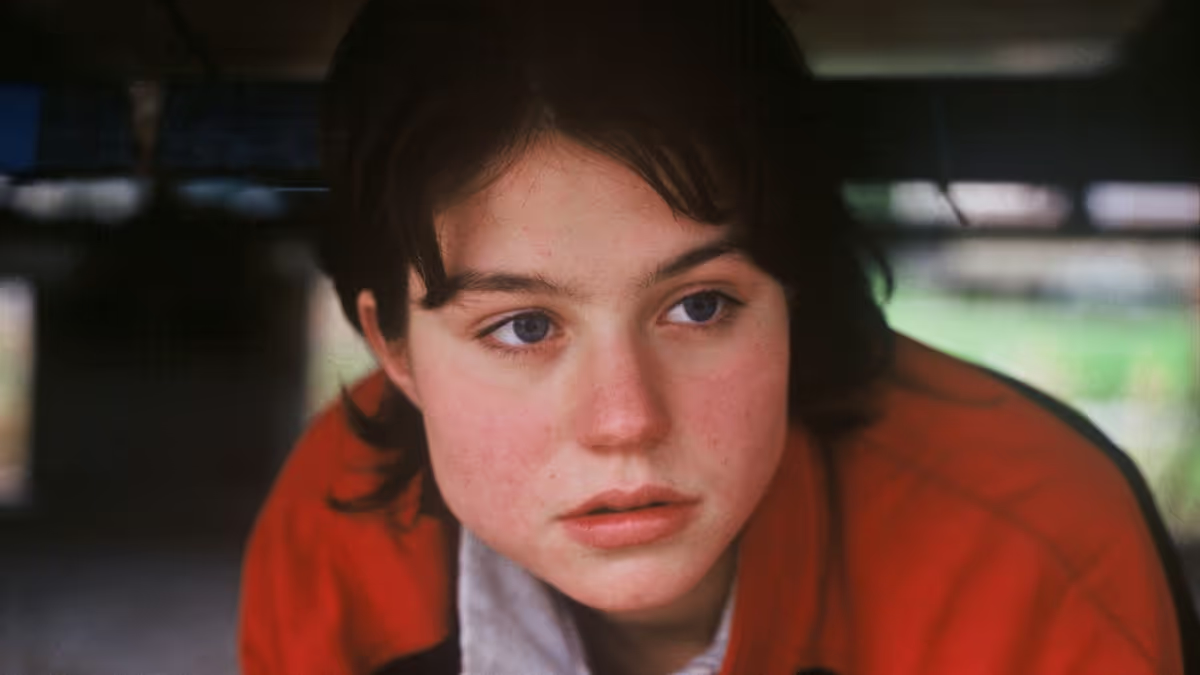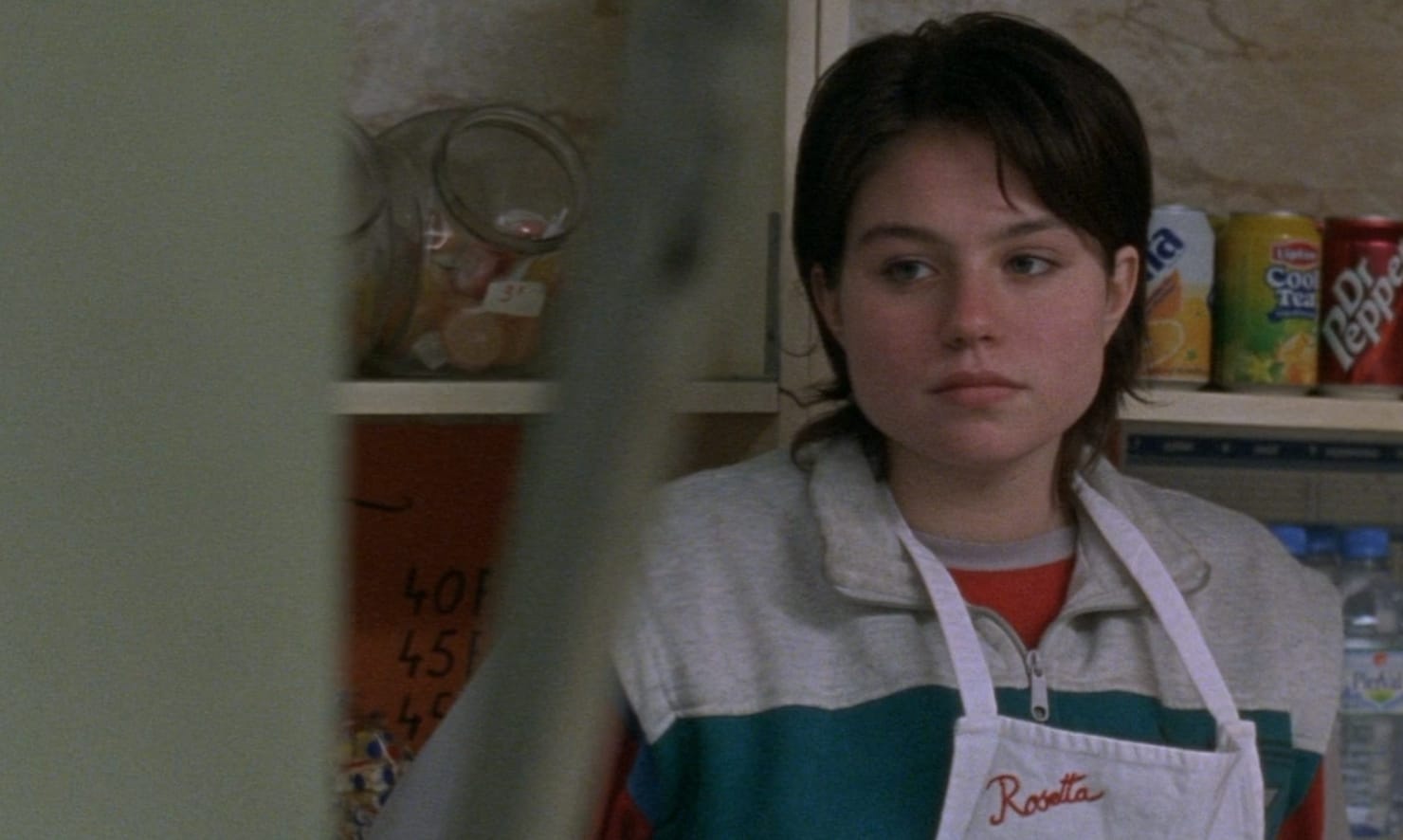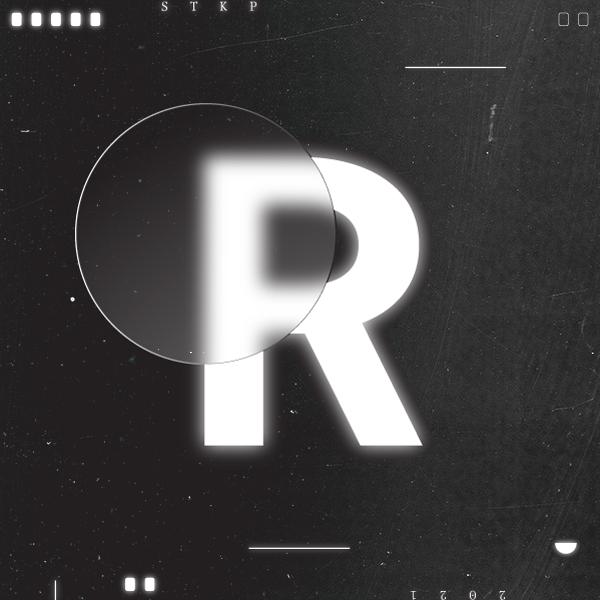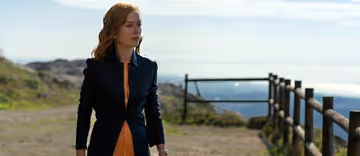The Face of Labor in 'Rosetta'
The Belgian actress Émilie Dequenne died this week. Her debut performance will live forever.

Three days ago, the Belgian actress Émilie Dequenne died of a rare form of cancer at a hospital in the Paris suburbs. She was only 43. When she was a teenager, Dequenne replied to a casting notice for Luc and Jean-Pierre Dardenne, who were looking for the right person to play the title character in Rosetta, the follow-up to their 1996 debut feature La Promesse, a piercing socal drama about the exploitation of immigrant laborers. As Dequenne describes it on the Criterion edition of Rosetta, she was one of 2,000-3,000 women who expressed interest in the role, submitting a handful of Polaroid pictures before she ever got to the audition process. In retrospect, the Dardennes’ methods seem exactly right: Dequenne’s face would forever sear itself in the consciences of whoever saw the film, much like Jean-Pierre Léaud in The 400 Blows or David Bradley in Kes. These are the faces of children who never had a childhood.
When Rosetta won the Palme D’Or at the Cannes Film Festival in 1999, it came as a shock to attending press, which had expected Pedro Almodóvar’s widely beloved All About My Mother to take the top prize, rather than this rough-hewn Belgian film that screened at the very end of the competition slate. (Many members of the press “had not even bothered to see” it.) The David Cronenberg-led jury voted unanimously in the film’s favor. In addition to awarding Best Actress to Dequenne, they further scandalized the festival by giving three awards to Bruno Dumont’s extremely polarizing L’Humanité, including the Grand Prix (second place, essentially) and prizes for the non-professionals in the lead roles, one of whom shared the award with Dequenne, another unknown making her first appearance. Years later, speaking to Bilge Ebiri for Vulture, Cronenberg insisted that history absolved a decision that, for his jury, was not remotely controversial:
We were not playing politics. We were just responding very directly to the movies in a very honest way and discussing them in a very open, honest way. We were told by our jury—God, my mind has really gone—that the vote for Rosetta was the fastest vote in the history of the Palme because everybody said, “Yes, Rosetta’s the one.” Every single member of our jury. No one had another one that they were proposing instead. So, once again, there was no politics. They wanted to pretend that I forced the jury into this decision in order to tweak the nose of other contemporaries of mine, like Pedro and Jim Jarmusch and John Sayles and others who had films there, but it wasn’t me. I only had one vote, you know? So there was a real disconnect between what was actually going on and what was happening in the press.
While All About My Mother would turn out to be a key benchmark in Almodóvar’s career—the jury did give him Best Director, so he didn’t leave Cannes empty-handed—Cronenberg notes that the Dardennes would become fixtures at the festival for years to come and would win the Palme again six years later with L’Enfant. But even for 1999, a year so strong that Brian Raftery wrote a book about it called Best. Movie. Year. Ever., Rosetta has cast an exceptionally long shadow for its tight, almost first-person perspective and for its handheld camerawork, which often follows its hero from over the shoulder, as if trying to keep up with her restless pace. A film like Darren Aronofsky’s The Wrestler lifts from it directly, but the Dardennes set a much broader standard for unvarnished portraits of an invisible labor class.

Not that Rosetta means to go unseen. Quite the contrary. From the opening shot of Dequenne prowling through a factory in the industrial town of Liège, Belgium, Rosetta is so desperate to hang onto a steady job that she quite literally clings to it, getting into a physical altercation with the manager who ends her temp gig without hiring her full time. “I did my job well!” she screams. “Everybody said so!” As we will learn later in the film, she’s speaking the truth here: Rosetta has a strong work ethic, but work for an unskilled teenager in the city is hard to come by and her naked desperation seems to be a red flag for employers. She exists on the precipice of disaster and she doesn’t have any time or space to feel comfortable. When Dequenne finally cracks a smile more than halfway through the film, it’s like a “Garbo laughs!” moment. You didn’t think that break in the clouds was possible– and neither, perhaps, did Rosetta.
The Reveal is a reader-supported newsletter dedicated to bringing you great essays, reviews and conversation about movies. While both free and paid subscriptions are available, please consider a paid subscription to support our long-term sustainability.
While the Dardennes are careful not to reduce her to a feral animal, there’s a base simplicity to Rosetta’s life that makes it seem like she’s penned into an invisible fence, like one of those zoo enclosures where you can’t see the bars. Her routine involves dashing across a busy highway and through the woods, where she changes into a pair of rubber boots she keeps hidden in a drainpipe. From there, she slips through a muddy forest to get to “The Grand Canyon,” the grim caravan park where she lives with her alcoholic mother (Anne Yernaux) and dodges the landlord who asks about their overdue rent. Her mom mends garments for a little extra cash, but her crippling addiction often reduces her to exchanging sexual favors for liquor, despite Rosetta chasing off sleazy men and castigating her mom for falling off the wagon. Rosetta finding steady work may be a longshot, but her mom’s chances at sobriety are much, much worse.
The one bit of sustenance that Rosetta can afford are the cheap waffles sold by a street vendor and she draws a little interest from Riquet (Fabrizio Rongione), a young man who works behind the counter and puts around town in a buzzing moped. When a job opens up, Riquet persuades his boss (Olivier Gourmet) to hire her and a few weeks of relative stability follow until the boss’ son, a feckless school dropout, takes over the position. Rosetta reacts with characteristic fury, but she can’t quite burn that bridge, so she starts spending more time with Riquet, who makes her French toast in his shitty apartment and plays her a cassette of his amateur drumwork for a local band. The two of them dance awkwardly until her period cramps act up. It is by far the happiest we will ever see her.
Without reducing her entirely to a social construct, the Dardennes turn Rosetta into a model of up-by-your-bootstraps capitalism: When she loses that first job in the beginning, she’s not eligible for unemployment but refuses the suggestion to apply for welfare. She does not want anyone to know where she lives, because she’s ashamed of her poverty. When she does get work at the waffle stand, she proves a quick study in making the batter behind the scenes and working the register up front, where she takes orders efficiently and pleasantly. And when she learns that Riquet, her only friend, is using a stolen waffle iron to make sales under the counter, she resolves to report him to his boss despite their relationship. Yes, she may only be trying to get her own job back, but solidarity to a fellow wage slave is a secondary concern. In this Darwinian marketplace, she’s hellbent on survival.
The Dardennes would draw out the working-class experience with more nuance in later films—the fight to stay employed is the engine of their wrenching 2015 drama Two Days, One Night, which goes deeper into how capitalism pits employees against each other—but Rosetta puts the experience of living hand to mouth in uniquely visceral terms. She asks for work wherever she goes. She negotiates a meager payment for a bag of clothes her mom was temporarily sober enough to mend. She’s not only willing to get into a fight to keep her job, but she considers letting Riquet drown in a nearby river, just so she can work at the waffle stand again. And when she runs out of options and finally tips off the edge of her precarious financial cliff, she resigns herself to the only solution she can imagine. Even then, the universe cruelly and ironically deprives her of the material means to carry it out.
Dequenne would continue appearing in movies throughout the remainder of her life, including The Brotherhood of the Wolf, The Girl on the Train (directed by Cannes juror André Téchiné), Our Children, and Love Affair(s), for which she won the César award for Best Supporting Actress. But anyone who has ever seen Rosetta will not forget the agitation, grit, and heartbreaking innocence she brought to the role. Rosetta goes about her waking hours with the steely resolve of a determined survivor, but every once in a while, she cracks in despair and need, a reminder that this resourceful girl is still just a child, with a mother who cannot care for her and a society that doesn’t care at all. There’s precious little return for her labor.




Discussion